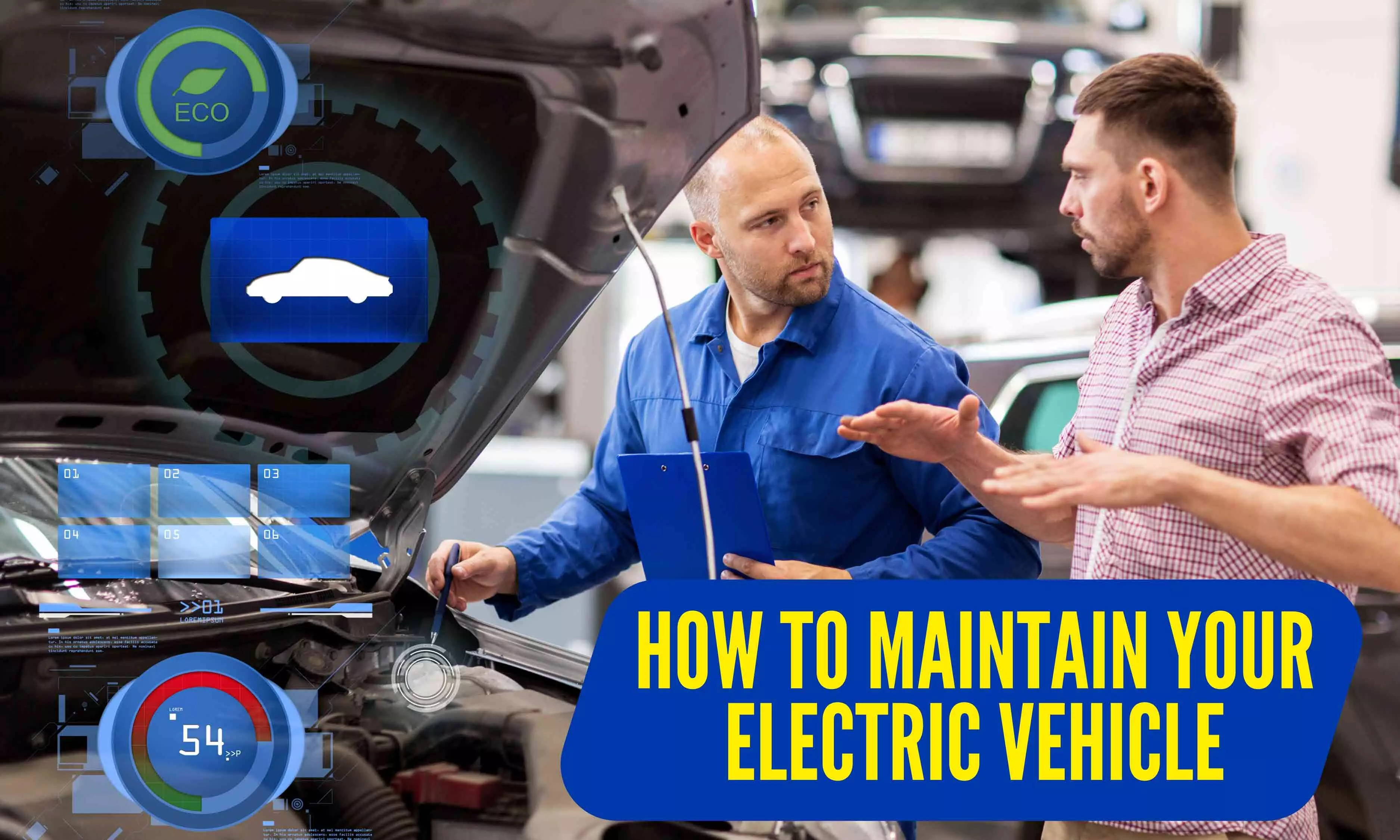How to Maintain Your Electric Vehicle: Guide To Follow
Electric vehicles generally require less maintenance than their internal combustion counterparts, but they are still complex machines that require service and maintenance. So, let's look into some best practices for electric vehicle upkeep.
How to Maintain Your Electric Vehicle: Guide To Follow

Ever since environmental concerns came to light, people began opting for sustainable choices. And among various picks, the adoption of electric vehicles has gained significant traction. In fact, India’s electric vehicle (EV) market is at an inflection point. According to data from the Society of Manufacturers of Electric Vehicles (SVEM) website, the number of EVs sold in India in 2024 increased to 1.67 million from 1.17 million in FY23, with electric four vehicles rising to 90,432 from 47,499 units. Therefore, it is clear that the industry will expand due to the growing number of people who are planning to switch to electric vehicles in the near future.
Though electric vehicles may still cost more to purchase than their conventionally powered counterparts, they’re generally cheaper to keep running via affordable home charging. Thus, without any doubt, electric vehicles save their owners cash on an ongoing basis via lower long-term EV maintenance costs. In fact, at the same time, it also combats environmental concerns, reducing more than 40 tons of CO2 emissions, as per Geotab.
While electric vehicles (EVs) are intended to be more eco-friendly and cost-efficient, the question arises: How to care for an electric car? What should be included in the EV maintenance checklist? Without further ado, let's dive into some of the most important electric car care tips for extending the life of your EV.
Electric Vehicle Maintenance Tips
While EVs require some upkeep, it is less taxing than ICE (Internal Combustion Engine) vehicles. To keep your EV running smoothly, make sure you follow the tips mentioned below.
Maintaining battery health in EVs: Undeniably, the battery is the heart of an electric vehicle, and its health directly impacts the car's performance and range. In order to optimise performance and range, avoid deep discharging (below 10% capacity) and charge your EV regularly, even for short distances. Regular software updates and avoiding extreme temperatures (above 35°C or below -20°C) also help. Furthermore, monitoring battery health through your vehicle's dashboard or mobile app allows you to track its condition and take proactive measures. By following these simple tips, you can extend the life of your EV's battery, ensuring a smooth and sustainable driving experience. Thus, proper battery care is essential for the longevity and efficiency of the EV.
Change the Oil: An EV, unlike conventional petrol/diesel vehicles, does not have an engine and so requires no engine oil replenishment. Furthermore, you do not need to worry about changing the spark plugs. However, EVs do include oil in their reduction gearboxes, which may require replacing over time.
Scheduled Maintenance: Next on the list is regular maintenance. So, do not forget to prioritise regular servicing for your EV to maintain smooth and safe operation. Follow this recommended electric car servicing guide. Firstly, make sure to check and refill fluids (brake, coolant, and windshield washer) every 10,000 km or 6 months. Secondly, at 20,000 km or 12 months, inspect and change brake pads, rotate tires, and examine suspension and steering components. Finally, every 50,000 km or 36 months, replace air filters, inspect and clean battery terminals, and update software. Adhering to this servicing schedule will keep your EV running efficiently, minimise the risk of breakdowns, and offer a stress-free EV experience.
Tyre rotation: There is no denying the fact that EV tyres are distinguished for their strength, efficiency, lightweight design, and long-lasting performance. Thus, tyre rotation is vital for extending the life of your electric vehicle. However, because EVs do not require oil changes, it can be difficult to keep track of tire rotation. So, as a general rule, rotate your EV's tires every 5,000 to 10,000 miles. Thus, by practicing good driving habits and performing regular maintenance, you may extend the life of your tyres to the higher end of this mileage range, maximizing your investment and lowering replacement expenses.
Check the brakes: An electric vehicle usually comes with a regenerative braking system. A regenerative braking system utilises the energy generated from slowing down the car and transfers it to the battery pack. It helps to extend the car’s range and increases the longevity of the braking system. While EV's brakes last longer than the brakes of a conventional fuel vehicle, you will need to replace a few parts, such as brake fluid and worn-out brake disc, from time to time.
Protect yourself by safeguarding your car!
In a nutshell, after buying the car of your choice, always keep the charging and maintenance of electric cars at the forefront of your thoughts. So, follow these best practices to maintain your electric vehicle and ensure it runs smoothly, efficiently, and safely for years to come.

